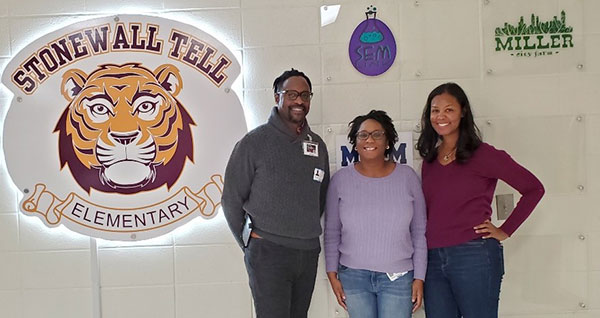Barely keeping our doors open: How COVID-19 has affected my small, Black-woman-led nonprofit

There is a common adage among the Black community that “when White folks catch a cold, Black folks get pneumonia.” Various versions have been stated by many Black leaders, but the meaning remains the same: the various inequities that result from racial biases and institutional racism impact all aspects of the Black community.
The current COVID-19 pandemic has once again highlighted these inequities in our society. Health disparities have caused the Black community to experience a disproportionately high number of infections, hospitalizations, and deaths. Unequal access to financial resources is limiting Black individuals’ ability to manage in light of the recession the pandemic has triggered. A May Forbes article, “Minority Owned Small Businesses Struggle to Gain Access to PPP Loan Money,” cited that in April, the Center for Responsible Lending predicted that 95 percent of Black-owned businesses would stand little to no chance of receiving a Paycheck Protection Program (PPP) loan through a mainstream bank or credit union.
Racial and economic inequities also mark the nonprofit sector. According to a recent article in Inside Philanthropy, “The Hardest Hit: Who is Supporting Communities of Color During Covid-19?” in 2016 grants for organizations led by people of color made up just 10 percent of domestic funding from the largest 1,000 foundations.
As the founder and executive director of a nonprofit organization, Science, Engineering and Mathematics Link Inc. (SEM Link), I have been long aware of the inequities in funding in the nonprofit sector for Black-led and Black-benefiting organizations. As a Black woman, I have experienced both racism and sexism during the development and growth of my nonprofit. A few weeks ago, I attended a webinar hosted by the Stanford Social Innovation Review, “Overcoming the Racial Bias in Funding.” One of the speakers, Kathryn Finney, who is a Black woman, said a major issue in philanthropy is that funders, and sometimes individual donors, do not trust Black women. This lack of trust leaves most nonprofits led by Black women learning how to do their organizations’ work while being underfunded and overworked.
When the pandemic hit, I anticipated that the racial biases and other barriers to funding for my organization would be exacerbated. I was right. While COVID-19 emergency funding exists for Black-owned and women-owned businesses, I did not qualify as a nonprofit. Although special funds have been created to help nonprofit organizations through this crisis, my applications are frequently denied. With a reduced pipeline for funding, I’ve needed to shift my focus away from applying for support that never seems to pan out. Instead, I am working on rebalancing expenses to match our reduced revenue and shifting our programming to adapt to the new context.
Because SEM Link offers 90 percent of our activities in school districts, colleges and universities, and public libraries, we had to cancel our programs when these locations closed. Although the buzzword of the pandemic called for nonprofit organizations to immediately “pivot,” SEM Link did not have the capacity and economic resources to do so. As a small nonprofit, we did not have the technical expertise to host virtual STEM (science, technology, engineering, and mathematics) events, nor the time and resources to effectively transition in-person events to virtual ones. Instead, I decided to engage our stakeholders via our social media platforms with an InstaStory series and to share information about STEM activities that youth can engage in at home.

SEM Link also took a financial hit. The pandemic started two days after we launched our spring fundraising campaign and during our final push to engage corporate sponsors for our signature event, our STEM Career Fair. Because we do not provide social services, I found it hard to ask for financial support when organizations on the front lines had a more immediate need. As a small nonprofit organization, we lack substantial cash reserves, and our operating account is close to zero. Thankfully, our basic operations expenditures are low, so we’ve been able to cover them with donations from my personal network, matching funds that we received from corporate giving programs, and a small grant that we received from a collective of Black business owners.
Even with the uncertainty that this pandemic has caused for my organization, I am thankful that we can still exist. Our board of directors and I will have to rely on our relationships to obtain the resources that we need for our programs and operations.
Black-led, Black-benefiting, and small nonprofits shouldn’t have to struggle as much as I have to secure the resources needed for our existence. The needs are too great, and the layers of inequity are heavy. I urge funders of all types to consider how your application processes and funding decisions do, or don’t, uplift organizations like mine. If you want to support racial equity, make shifts to #GiveBlack and #GiveSmall.






